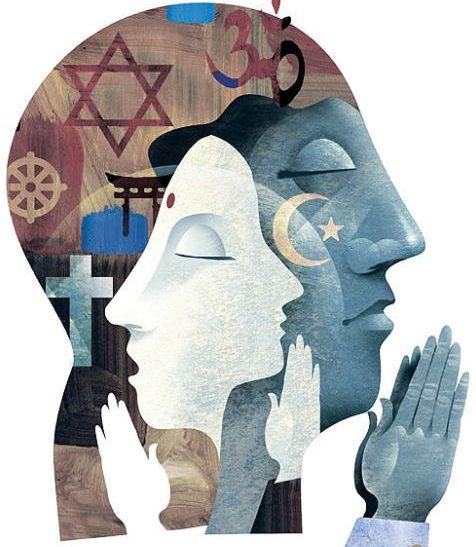Introduction:
The histories of Islam, Christianity, and Judaism are deeply intertwined, each with its unique origins, beliefs, and contributions to human civilization. This narrative explores the rich tapestry of these three Abrahamic faiths, tracing their historical roots, key events, and enduring legacies that continue to shape the world today.
Origins and Founders:
Islam traces its origins to the teachings of Prophet Muhammad (peace be upon him), who received divine revelations from Allah through the Angel Gabriel in 610 CE. Muhammad’s mission was to proclaim the message of monotheism and establish a just and compassionate society based on Islamic principles.
Christianity, on the other hand, emerged from the teachings of Jesus Christ (Yeshua), believed by Christians to be the Son of God and the Messiah. Jesus’ life, ministry, death, and resurrection form the central tenets of Christian faith, emphasizing love, forgiveness, and salvation.
Judaism, the oldest of the three monotheistic religions, traces its roots to the covenant between God and the Hebrew patriarchs, notably Abraham, Isaac, and Jacob. The Torah, containing the sacred scriptures and teachings of Judaism, forms the foundation of Jewish faith and identity.

Key Events in Islamic History:
Islam’s early history is marked by significant events that shaped its development and expansion. The migration (Hijrah) from Mecca to Medina in 622 CE marked the beginning of the Islamic calendar and established Medina as the first Muslim community. The Battle of Badr, fought in 624 CE, was a turning point that solidified the Muslims’ position in Arabia.
The conquest of Mecca in 630 CE marked a significant milestone in Islam’s spread, as the city embraced Islam peacefully. Muhammad’s farewell pilgrimage in 632 CE and his passing in Medina marked the end of an era and the beginning of the Muslim community’s leadership under the Rashidun Caliphs.
Key Events in Christian History:
Christianity’s history is shaped by pivotal events such as the crucifixion and resurrection of Jesus Christ, which Christians commemorate during Easter. The Council of Nicaea in 325 CE played a crucial role in defining Christian doctrine and establishing key beliefs such as the Trinity.
The Great Schism of 1054 led to the division of Christianity into the Eastern Orthodox and Roman Catholic Churches, marking a significant split in Christian theology and ecclesiastical authority. The Protestant Reformation in the 16th century, led by figures like Martin Luther and John Calvin, challenged Roman Catholic practices and doctrines, giving rise to Protestant denominations.
Key Events in Jewish History:
Judaism’s history is characterized by key events such as the Exodus from Egypt, led by Moses, and the revelation of the Torah at Mount Sinai. The destruction of the First Temple in Jerusalem by the Babylonians in 586 BCE and the subsequent exile marked a period of upheaval and diaspora for the Jewish people.
The establishment of the Second Temple in Jerusalem and the Maccabean Revolt in the 2nd century BCE are significant events in Jewish history, symbolizing resilience, faith, and national identity. The Roman destruction of the Second Temple in 70 CE led to further dispersion of Jews across the Roman Empire.
Common Themes and Beliefs:
Despite their distinct historical trajectories, Islam, Christianity, and Judaism share common themes and beliefs rooted in monotheism, prophetic tradition, ethical teachings, and social justice. The belief in one God (Allah, Yahweh), reverence for prophets (Muhammad, Jesus, Moses), and moral principles (love, compassion, justice) form the core values of these faiths.
Interfaith Relations and Dialogue:
Interfaith relations and dialogue play a crucial role in fostering understanding, cooperation, and mutual respect among followers of Islam, Christianity, and Judaism. Initiatives such as interfaith councils, dialogue forums, and collaborative projects promote peaceful coexistence and bridge cultural and religious divides.

Conclusion:
The histories of Islam, Christianity, and Judaism reflect the enduring quest for spiritual truth, moral guidance, and human flourishing. Despite historical differences and theological diversity, these three Abrahamic faiths continue to inspire millions of believers worldwide, shaping societies, cultures, and the global landscape of religious diversity. It is through dialogue, mutual respect, and shared values that followers of Islam, Christianity, and Judaism can contribute to a world of harmony, peace, and understanding.










